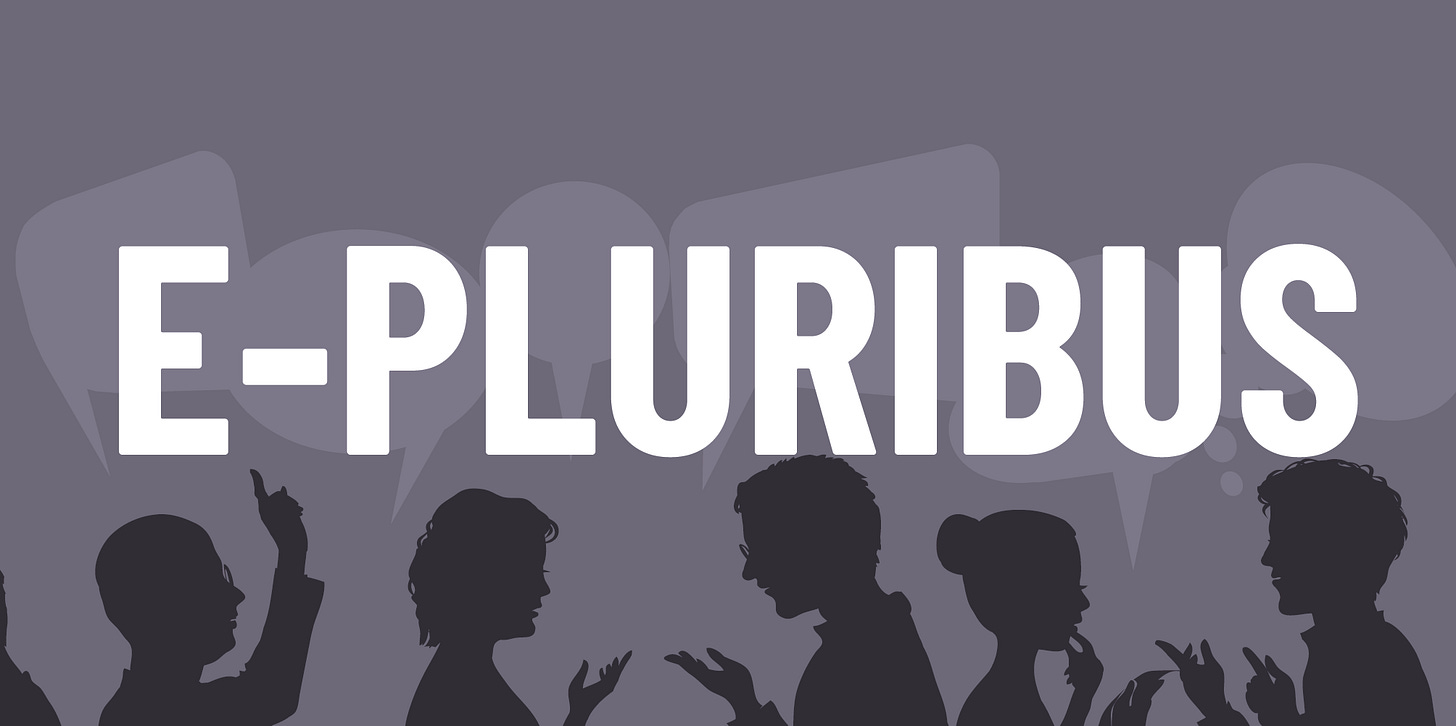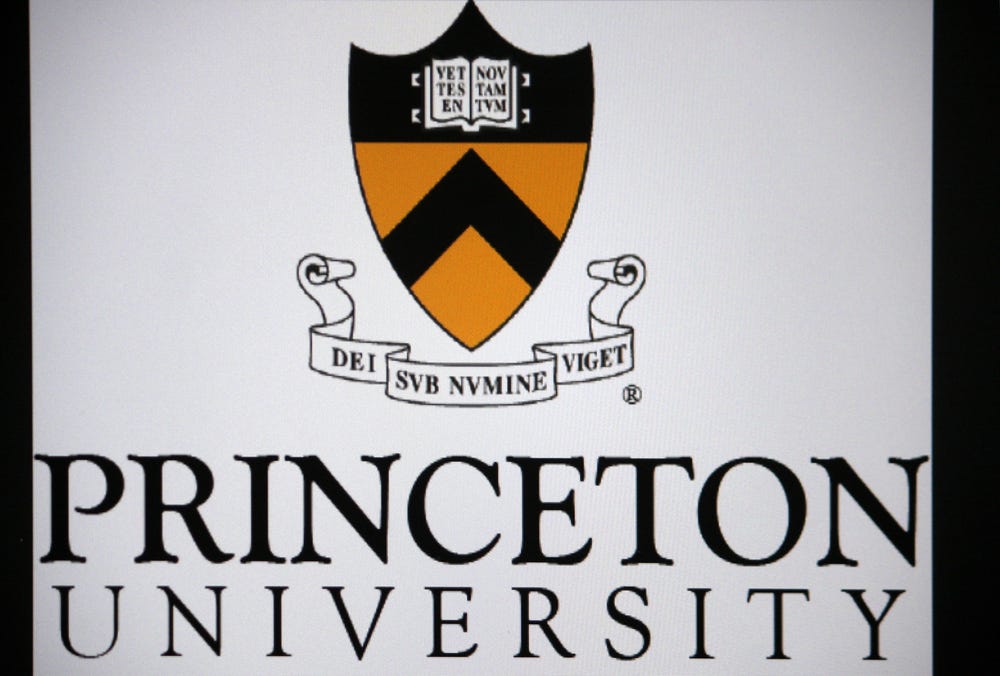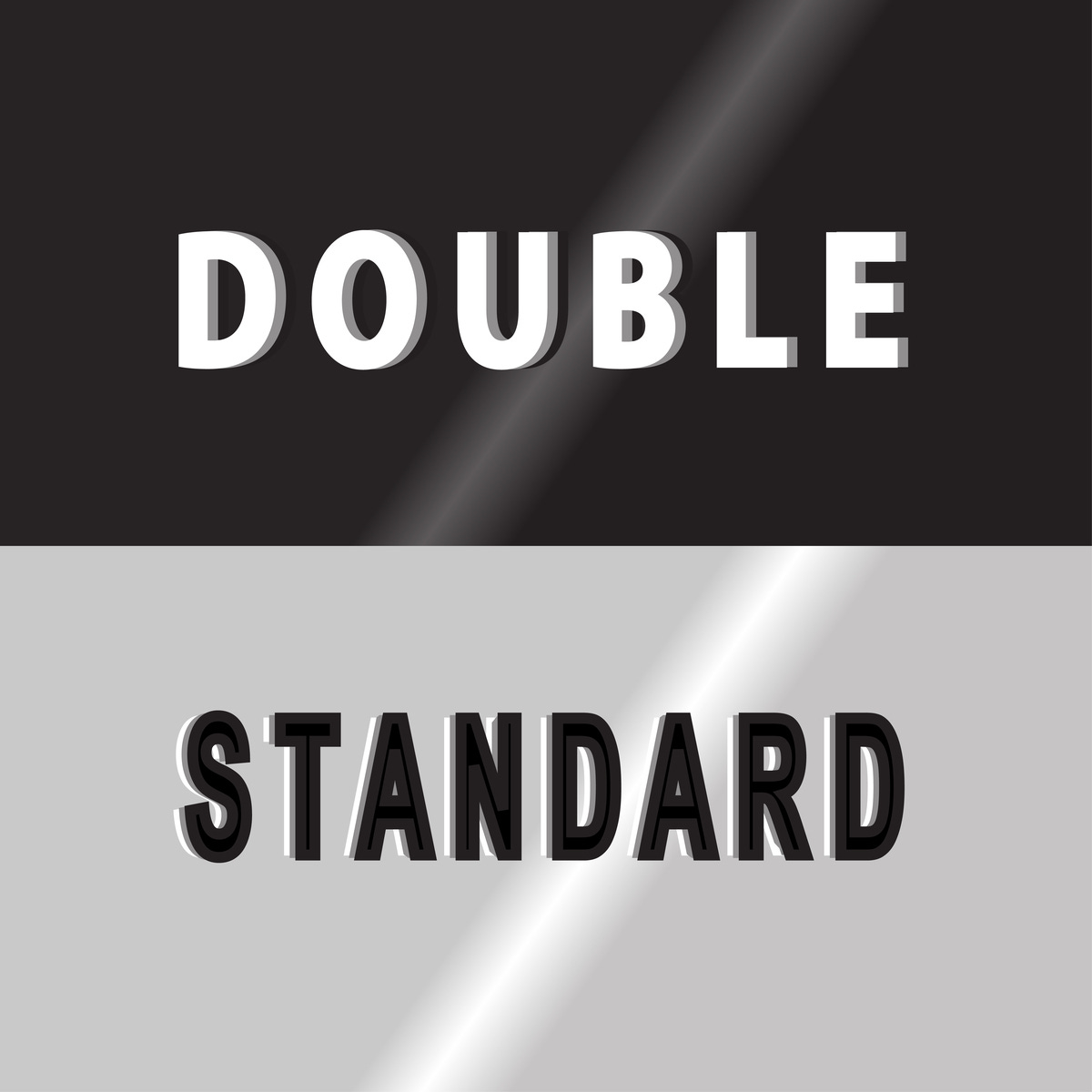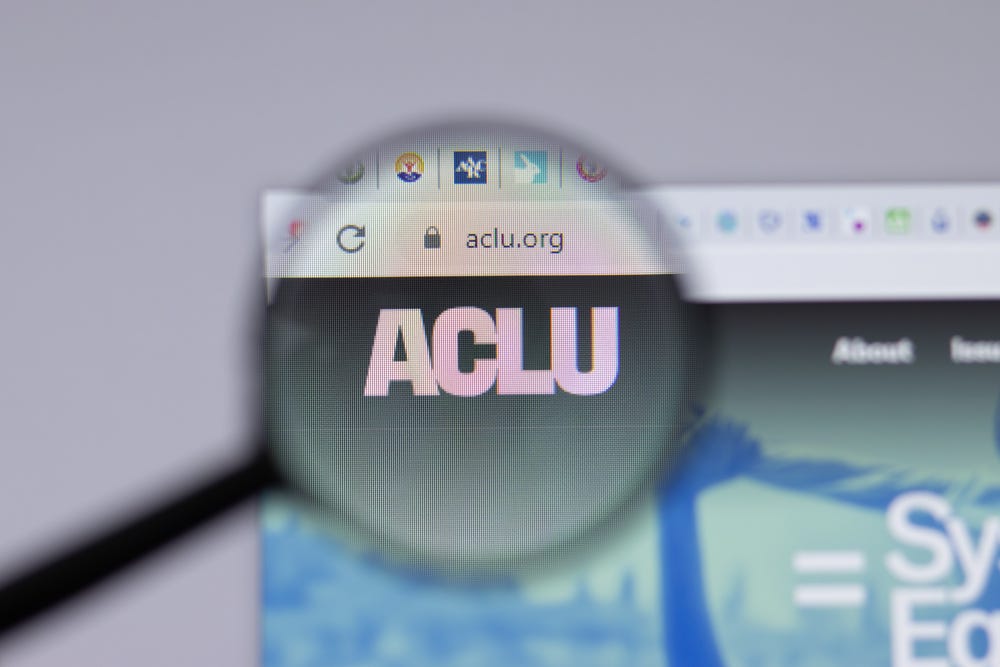E-Pluribus | December 10, 2021
The students of Princeton hear about the importance of speaking the truth, the media's double standard on parenting, and the ACLU stumbles... again.
A round up of the latest and best writing and musings on the rise of illiberalism in the public discourse:
Abigail Shrier: What I told the students of Princeton
Due to the publication of her book, Irreversible Damage: The Transgender Craze Seducing Our Daughters, Abigail Shrier is no stranger to consequences for speaking the truth as we have chronicled here at Pluribus numerous times. Shrier recently spoke to a group of students at Princeton (she was there at the invitation of a conservative campus publication) about the importance of remaining faithful to the truth despite the consequences.
I know why students keep their heads down. They are hoping for that Goldman or New York Times internship, which they don’t want to put in jeopardy. Well, any institution that takes our brightest, most capable young people—Princeton graduates!—and tells you can only work here if you think like we tell you to and keep your mouth shut, that isn’t really Goldman Sachs and it isn’t the paper of record. It’s the husk of a once-great institution, and it’s not worth grasping for. Talk to alums at these institutions: they sound like those living under communist regimes. That’s the America that awaits you if you will not speak up.
You who are studying at one of the greatest academic institutions in the country only to be told that after graduation, you must think as we tell you and recite from this script—why were you born? What’s the point of being alive? Computers are vastly better at number crunching. They’ll soon be better at all kinds of more complex tasks. What they cannot do is stand on principle. What a computer cannot do is refuse to lend credibility to a rigged competition—to refuse to strengthen its coercion—making it that much harder for the next female athlete to speak up. What the computer cannot know is the glorious exertion of the human will when it refuses to truckle in the face of lies and instead publicly speaks the truth.
I didn’t write Irreversible Damage to be provocative. In a freer world, nothing in my book would have created controversy. I wrote the book because I knew it was truthful and I believed recording what I found—that there was a social contagion leading many teenage girls to irreversible damage—was the right thing to do. I also believe if I hadn’t written it, thousands more girls would be caught up in an identity movement that was not organic to them but would nonetheless lead them to profound self-harm. But I didn’t write it specifically to stop them. I wrote it simply because it was true.
Read the whole thing.
Heather Mac Donald: The Media’s Color-Coded Parenting Standard
Modern parents are often made to feel like interlopers in the lives of their children, particularly when it comes to education, and yet there are times when parental responsibility is widely recognized and expected. One such case is the recent school shooting in Oxford, Michigan. However, Heather Mac Donald at City Journal writes that race seems to play a role in the expectations of the public on how deep that responsibility goes.
On April 19, 2021, McDonald’s CEO Chris Kempczinski suggested in a text to Chicago’s mayor that the parents of two children recently killed in Chicago’s gang activity had “failed those kids.” Kempczinski’s text became public in November 2021, prompting widespread accusations of racism and calls for his resignation. Kempczinski confessed to his white privilege and apologized profusely for holding parents responsible for the fate of their children.
[…]
Kempczinski made his ill-fated suggestion of parental responsibility after seven-year-old Jaslyn Adams was gunned down by her father’s gang rivals. Jaslyn and her father Jontae Adams were parked in a McDonald’s drive-thru lane on Chicago’s West Side on April 18, 2021, when two gunmen jumped out of a car and unleashed at least 45 shots at their car. Jaslyn was struck six times and died; Jontae was seriously wounded. A convicted heroin dealer, Jontae knew that his gang’s enemies were out for his blood. The day before the shooting, he tweeted: “Opps probably downstairs waiting on me.”
[…]
Contrast the response to Kempczinski with the public attitude toward Ethan Crumbley’s parents. Even if one agrees with the indictment holding them criminally responsible for their son’s murder rampage, one can still wonder why other parents are treated as nonexistent. The Crumbleys’ very presence in their son’s life and their responsiveness to the authorities made them available as a target of criminal liability. They both came to the school when officials summoned them but declined to pull Ethan from school on the day of the shooting, because they both worked and didn’t want to send him to an empty home. Had they been from the inner city and not shown up at all, no media figure would have objected. But because the Crumbleys responded to the school, the media can ask why they didn’t search Ethan’s backpack to see if he was carrying his gun. We could ask the same question of parents whose children are out on the streets every night, obviously up to no good.
Read it all.
Jacob Sullum: The ACLU's Push To 'Cancel' Student Debt Shows How Far It Has Strayed From Defending Civil Liberties
That the ACLU has strayed from its original mission is hardly a controversial statement anymore. Jacob Sullum at Reason writes that not only has the ACLU allowed other issues to distract it, but sometimes its positions are in direct opposition to the fundamental values the organization purports to uphold.
The ACLU argues that "student debt is a racial justice issue," because it is "a crushing burden that falls heaviest on Black communities, and especially onto Black women." By this logic, any problem that disproportionately affects a particular racial group is likewise a racial justice issue and therefore, by the ACLU's reckoning, a civil liberties issue.
[…]
That explanation of the ACLU's stance on student loans conflates state action with private action, assumes that "pay disparities" result from "job discrimination," and posits that the lingering effects of state-supported racism explain most, if not all, educational and economic disparities between black people and white people. These are all highly contentious issues on which Americans of different ideologies and political preferences strongly disagree. While an organization that consistently defends civil liberties cannot avoid controversy, opening this can of worms detracts from that central goal, needlessly alienating potential allies.
[…]
To give you a sense of how far afield that cause takes the ACLU from the defense of constitutional rights, the organization argues that "broadband access for all" is a racial justice issue because "people without broadband access are disproportionately Black, Latinx, Indigenous, rural, or low-income." The organization therefore supports the Accessible, Affordable Internet for All Act, which would "invest $94 billion to build high-speed broadband infrastructure in underserved communities and ensure that the resulting internet service is affordable."
Read it all here.
Around Twitter
Chad Williams, a student at NYU Law, writes about CRT for Foundation Against Intolerance & Racism, and gets a boost from Andrew Sullivan and Wesley Yang:
Matt Yglesias takes issue with the over reliance on “white” to explain political differences, especially on the Democratic side:
And finally, also via Matt Yglesias (and Axios), will MASA (Muslim, Arab and South Asian communities) join AAPI (Asian American and Pacific Islander) and a host of other demographic subgroups as the effort to further subdivide Americans progresses?











